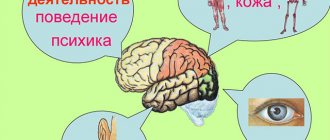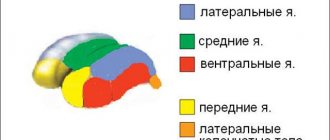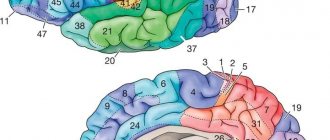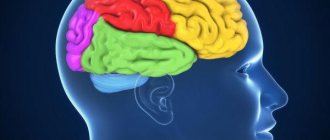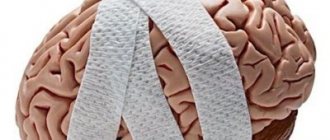In today's world, where everything changes so quickly and information is easier to find than ever, you don't need to memorize encyclopedias to be effective at work. Now it is not the information itself that is valued, but the ability to search for and process it. We have collected for you some tips on data processing that will help you save time on searching, filter out fakes and draw the right conclusions.
Working with information includes three main stages: searching, processing and presenting results.
Data Search
Nowadays, there are a huge number of sources from which you can draw information. This is the Internet, databases, experts, various studies, etc. The most important thing is not to get carried away and hang on to every word. To paraphrase Pareto's law, “20% of the effort produces 80% of the results.” This law, like no other, applies to working with data. Think in advance about what information will be key for you and concentrate on finding it. There is a long-standing debate about the relationship between qualitative and quantitative methods when searching and analyzing data. Which ones should be used at the beginning and which ones at the end? Most often, it is better to first use qualitative methods (the stage of constructing a hypothesis about possible ways to solve the problem), then quantitative ones (the stage of confirming it). But this approach is not an axiom, so always look at the situation.
Search algorithm
The general scheme for searching for information is quite simple: start with the simplest sources and gradually move on to more labor-intensive ones:
- Before you start your search, it's good to know what exactly you're looking for. So try to find similar projects and delve into the topic.
- Look at the big picture and formulate questions. The search space may be too wide, so set boundaries.
- Arrange an initial meeting with an expert to determine the direction of work.
- Collect detailed information from open sources. This is the most important and voluminous part of the work.
- Conduct a second meeting with an expert, clarify the accumulated questions.
- Done: you have a relevant picture of the problem.
Self improvement
To analyze is, first of all, to know yourself. Try to think about the most important questions in your everyday life: “why am I living,” “what is my biggest goal in this world,” “what should I be doing right now?” All these problems affect your most painful points of contact with the Universe, and therefore it is quite difficult to give yourself an answer.
Read the right books, attend interesting seminars, communicate with people, look for like-minded people. Remember: you only have one chance to walk the path correctly, in a dignified manner, for the benefit of yourself and those around you.
Thus, being able to analyze means constant, daily work. If something doesn’t work out right away, you need to be patient and act with enviable tenacity in a given direction. Good luck to you, dear readers, success and all the best!
Working with open sources
The most accessible source of information is the Internet. But in the vastness of the Internet you need to be careful and not trust everything you find. When using search engines, try to carefully filter information and learn to write concise queries, using exactly those keywords that will lead you to the necessary resources. You can also use news services. Consulting often uses proprietary databases, such as BCG's Press Search. Databases from major universities and international organizations can also be useful. This source is more useful than search engines, because only verified and authoritative information is collected there. Presentation sites like Slideshare or Scribd can sometimes help, too. Also pay attention to company reports, various statistical resources, marketing research (they will allow you to quickly immerse yourself in the industry) and research from investment banks (data sources are always indicated there, and the information is of very high quality).
Psychological trainings
Today, in almost any city you can find special courses and organized classes in order to increase your level of competence in a particular area. Trainings can be narrowly focused on the development of a certain character quality and classes on personal growth. In the latter case, a lot depends on the motivation of the people who come, on how they want to see themselves in the future. Psychological trainings help you look at yourself from the outside, realize the importance and necessity of change.
“Learning to Analyze” is a completely appropriate name for group classes. Why are meetings held with a small audience of 10-15 people? When conducting a training, it is important not only to give the student the necessary information, but also to teach him how to work with it. And this is best done in a group where participants will reflect each other’s results and share their impressions.
How to get information from an expert
Here everything is a little more complicated: you still have to work with a person, and not with a machine. Before the meeting, be sure to conduct an independent educational program to feel confident and at least not ask stupid questions. If any of your colleagues have already met with this person, find out what issues they discussed. Experts hate it when they are asked about the same things a hundred times. However, it doesn’t hurt to make sure that your expert really understands the topic. Read about him, look through his works. Detective Columbo from the series of the same name had a trick: he always left the most important question for last. Consultants often do this too. At the very end, when you are already at the door, and the expert (client, colleague - whoever) has relaxed and ordered a taxi, take him by surprise with an unexpected and important question. In this state, he will either automatically answer honestly, or you will easily understand that they are not telling you something. However, if serial maneuvers are not for you, end the conversation with an open-ended question: “Is there anything important that I haven’t asked?” This is quite normal practice. Remember that it is always better to ask open-ended questions to allow the expert to talk as much as possible and share with you all the information he knows. When seating yourself in a meeting, always give the expert the most comfortable and honorable seat to show respect. Often people instinctively sit opposite each other, but this position resembles a “wall to wall” fight, and you automatically become rivals. If the meeting format is not one-on-one, a member of your team can sit on the client's or expert's side to defuse the situation. Be tactful and act depending on the situation. Always ask permission to take notes. It is better not to use a voice recorder. This can alert a person: he will begin to speak less confidently, trying not to blurt out too much. In any case, keep in touch with the interlocutor and do not get too carried away with notes, otherwise he will think that he is communicating with a stenographer. Over time, you will learn to capture all the information using a minimum of notes. Create your own keywords, abbreviations, and other techniques to make your entries more concise. Some experts like to draw diagrams or write abstracts when explaining something. Ask to use their notes after the interview. Firstly, it can really come in handy, and secondly, it is also a kind of sign of respect. If the expert moves away from the topic, you can tactfully interrupt him. At the end, briefly go over the points you discussed so that your interlocutor can correct you if you make a mistake. After the meeting, do not forget to write a thank-you note to the expert to strengthen the contact. Who knows, perhaps you will need his help more than once.
Information analysis
To correctly analyze information, it is important to structure the data received and keep the purpose of the analysis in mind. Good news: analysis can be learned!
First, let's introduce a few terms:
Analysis (gr. analysis - decomposition, dismemberment) is:
1) a method of scientific research, consisting in the mental or actual decomposition of the whole into its component parts;
2) analysis, consideration of something.
An information analysis algorithm is a sequence of operations, applied according to certain rules, aimed at decomposing information that reduces uncertainty in order to study, systematize and generate knowledge both to solve the problems of the organization and to form the collective knowledge of the organization, such as, what, who, when and why (what for) should do.
At its core, analysis is a method that allows you to decompose a large amount of information into short parts, as well as study each component separately.
A good analyst must have the following skills and abilities:
- collection of information;
- working with large amounts of data;
- dividing information into parts;
- data comparison;
- search for connections;
- information assessment;
- consistent presentation of thoughts;
- working with facts;
- separation of the main from the secondary;
- the ability to question information;
- searching for an alternative;
- conclusions;
Like any other skill, analysis can be trained. To get started, simple exercises related to working with text are suitable. Read a short text of a couple of paragraphs and choose the key part. Another useful exercise will be solving mathematics problems familiar from the school curriculum. The reason is that we begin solving problems in the exact sciences with an analysis of what is “given”; it is the analysis that becomes the key to solving the problem.
There are several more simple ways that allow you to master analytical thinking skills:
- solving crossword puzzles;
- chess;
- reading detective stories;
- participation in discussions;
- creating mind maps;
- keeping a diary;
- modeling of life situations;
What does this result in: a person with predominant analytical thinking makes thoughtful and informed decisions, knows how to plan and make forecasts of his activities.
Data processing
Now that you have collected information, you can move on to the next stage - data processing. It consists of two parts: quality control and analysis. First you need to evaluate how well the information meets four criteria:
- Completeness. Check if you have all the necessary data.
- Relevance. Make sure all the information you find is up to date.
- Credibility. Compare information from several sources. Use only the correct data. If in doubt, consult an expert.
- Relevance. Soberly evaluate the information you find and see if there is any unnecessary data in it.
Check the data for common sense - conduct the so-called Sanity Check. This is a simple test that allows you to quickly evaluate a solution, conclusion, or premise. Its purpose is to immediately track down an obviously false result. You can compare this with how market-sizing problems are solved in consulting. Quick calculations based on assumptions often produce fairly accurate results, so do not underestimate this method of processing information. After you have checked the data, you need to process it and analyze the information: understand the relationships and draw conclusions. Let's start with the banal: when starting analysis, you should firmly define what, how and why you will analyze. You should always approach working with information with ready-made hypotheses and a clear idea of what this information will give you. Analysis consists of testing hypotheses and their further confirmation or refutation. Beware of data paralysis, where too little or too much information can confuse your team. While working, pay attention to the limitations in both the amount of information and time, so that you have time to do a Sanity Check before proceeding to use the analysis results. To facilitate information processing, there are three types of analytical assistants: general approaches, specific frameworks and graphs.
To analyze means to be able to process the information received
Analyze means making a decision using your analytical skills. The entire process of making a correct and thoughtful decision can be divided into three steps. First, you should collect as much information as possible. Then it needs to be carefully analyzed and a final decision made based on the conclusions drawn.
How analytical skills help solve problems
It is worth noting the importance of the information collection stage. And in this matter it is better to use your own experience, since other people’s advice will not help you, but rather, on the contrary, will hinder you. Therefore, listen less to those who are not interested in solving your issue. Some people do not need to be explained what it means to analyze; it is given to them by nature. But if you are deprived of this skill, then you need to train your ability to analyze and develop analytical thinking. You can achieve results in any field of knowledge, but this will require some effort.
How to analyze correctly - simple training
You need to start training with simple exercises. For example, you should read a short text and try to determine which part is the most important. To do this, you need to make a plan for the main events that are described in the text.
This exercise will help you learn to identify the most important things from the mass of information received. This will be enough to achieve success in almost any field of activity. Just remember, overdoing this exercise will not do you any good. A large amount of unnecessary information will not help you learn to analyze. It will only confuse you.
Analysis in problem solving
Solving physical and mathematical problems will also help you learn how to correctly analyze the information received. In the exact sciences, to find the answer, you first need to analyze the given conditions. Only in this case will you understand how to solve the problem. Since analyzing is not so easy, during this exercise it is worth trying to structure the solution stages in a certain sequence.
Practical application of analysis
To process the information received, you need to have such a character trait as perseverance. If the proposed exercises do not seem difficult to you, then you can try to apply the analysis in practice. Please note that it is better to test your strength in situations that do not concern you personally. Otherwise, you will not be able to analyze subjectively; it will be a decision made under the influence of emotional excitement. That is, it will not be one hundred percent correct.
Having a maximally objective attitude towards the situation will help you learn to control your emotions, which will be useful for developing analytical thinking. It is recommended to start with everyday life situations that you can easily explain. For example, try to find the reasons why this or that situation occurred, or explain people’s behavior. Gradually increasing the level of complexity of the analytical problems you solve, you will learn to find the right way out of almost any situation.
Information processing methods
Common approaches are ranking (aka prioritization), matrices, scenario approach, investment analysis, segmentation and risk analysis. The first three methods are used in almost any type of analysis, so mastering them is a must. The remaining three are used to solve specific problems. For example, segmentation helps categorize companies, and investment analysis is used to compare costs to expected returns. Specific frameworks include, for example, Porter's five forces, SWOT analysis and return on capital employed analysis. They help to understand the key idea behind strategic decisions. By the way, young consultants love to use SWOT analysis absolutely everywhere, but in fact this method, although useful, is not as applicable as it might seem at first glance. Everything is clear with the graphs. It is the best tool for visualizing large amounts of data. Returning to the beginning, remember that analysis is not an end in itself. You need to test hypotheses, so don't start analyzing data until you understand what it should lead to. This way you will save a lot of time and effort.
Result presentation
In order to make a high-quality presentation of your research, you need to master only one principle - the Minto pyramid. This simple tool consists of grouping ideas into clusters that support and reveal the main thesis. We start with the key problem, move on to supporting arguments, and end with details. As Barbara Minto, the first female McKinsey consultant to develop this principle, herself said, “Writing something clearly and understandably means taking two steps. The first is to determine the goal, the main idea that you want to convey to the reader, the second is to express this idea in words or in writing.”
Lifehacks
Use special reading techniques. Everyone has practiced in-depth reading and reading-scanning at least once in their life; there should be no problems here. There are differing views on speed reading. Practice shows that you can do without it, but to increase your efficiency, try to master this method. You will be helped by specialized applications based on spritz technologies (words are displayed on the screen one at a time to reduce the time it takes your eyes to move through lines) and Blankist (the program splits texts into parts, each containing the main idea, which you can read in just a couple minutes). To speed up your work, learn to type quickly. There are many programs for developing this skill: “Keyboard Solo” - for Windows, KeyKey - for Mac OS, or the online trainer “All10”. One final piece of advice: Always consider at least seven options when choosing anything, be it a refrigerator or a career path.
You can learn other life hacks for quick and high-quality information analysis at the Changellenge School >>. During the 21-day educational intensive, you will understand other stages of solving business problems: from formulating a problem to defending a project in front of clients.
Find out more >>
A 21-day educational intensive, created according to MBA principles, will pump you up for a cool career. You will find four cases from different industries: banking, consulting, IT, FMCG, 20 experts with MBA diplomas and more than 100 useful contacts. Hurry up to apply!
Find out more >>
We recommend:
- How to discover working hypotheses
- Searching as an art: where and how to look for information correctly
- How to find an expert and collect quality information
